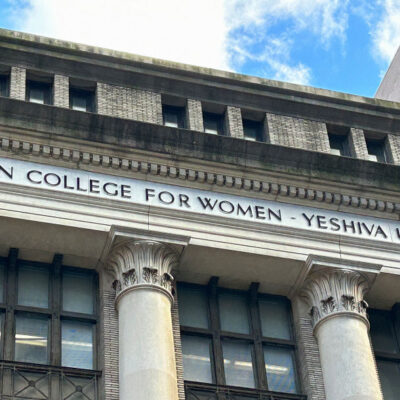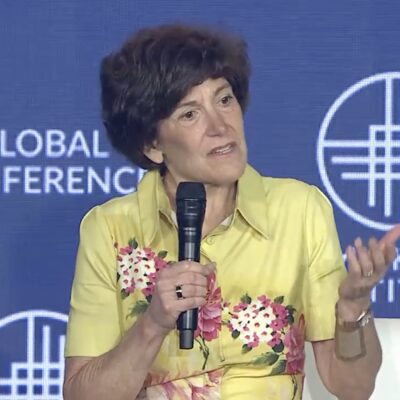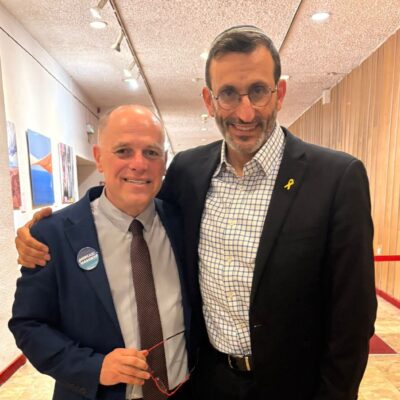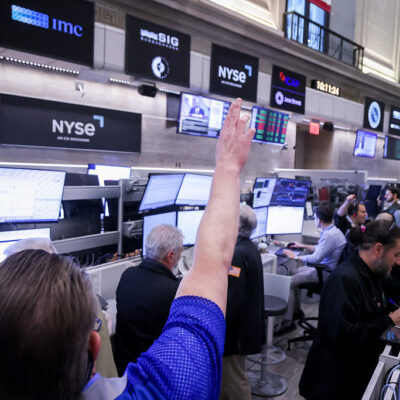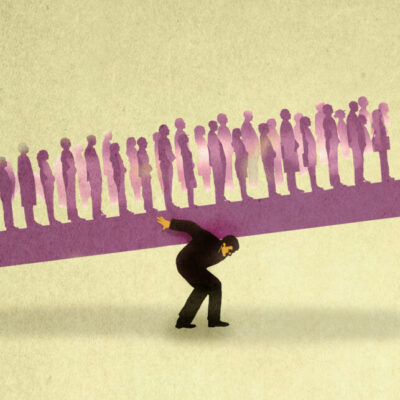Opinion
THE 501(C) SUITE
‘Independence Day’ revisited: A Jewish reflection on modern challenges

In eJewishPhilanthropy’s exclusive opinion column “The 501(C) Suite,” leading foundation executives share what they are working on and thinking about with the wider philanthropic field.
I will admit it: I loved the movie “Independence Day.” The 1996 blockbuster directed and co-written by Roland Emmerich was the ultimate popcorn movie that summer. It had a great cast (despite the cringeworthy and very Jewy father played by Judd Hirsch) and focused on an oddball collection of people responding to an alien attack on our planet. The movie culminates on July Fourth, when the people of Earth strike back.
Before the big counterattack, U.S. President Thomas Whitmore (played by Bill Pullman) tries to rally the troops. It’s not easy. Every strategy they tried thus far failed in the face of overwhelming force and superior technology. They have no reason to believe this effort will produce a different result; they only know it will be their last shot.
Whitmore, himself a former fighter pilot, pauses as he walks to his plane and addresses the dispirited, ragtag force.
“Perhaps it’s fate that today is the Fourth of July,” he says, “and you will once again be fighting for our freedom — not from tyranny, oppression or persecution, but from annihilation.”
He goes on to say that if they win, July Fourth will no longer be just an American holiday but a holiday that the whole world celebrates: the day that they fought back together.
(Spoiler alert: We win.)

It’s an emotional moment for an action movie, and I was moved by the speech when I first saw the film. Truth be told, I still am. Whitmore issues a challenge: How will future generations look back at us, at how we responded to this moment? Did we lay down, exhausted by the superior forces of those who oppose us, or did we take the fight to them and secure a better future?
I hadn’t thought about the film until recently as July Fourth approached this summer. For the first time, the film seems very Jewish to me. An unanticipated attack shocks us and reveals a vulnerability that we didn’t know we had. The overwhelming scope of global antisemitism can be dispiriting; each day seems to reveal a new manifestation, and each time we respond it feels increasingly like this macabre game of whack–a–mole. It can be exhausting.
It seems clear that Oct. 7, 2023 marked a turning point not only for Israel but for world Jewry and probably for the free world as well. How will future generations of Jews judge us? Were we up to the challenge?
One of the items on my bucket list is to visit the beaches of Normandy, France, and trace the path of those Allied forces who showed such incredible courage securing the liberation of Europe and the defeat of the Nazis. Their bravery is staggering and our debt to them is unimaginable. I wonder if I would have been able to muster that courage. But that isn’t the lot that God has cast for us.
The story is told of Rabbi Zusha of Hanipol who, on his deathbed, was in tears and could not be consoled. His students reassured him that he was almost as wise as Moses and as kind as Abraham — surely he would be judged positively in Heaven.
“When I pass from this world and appear before the Heavenly Tribunal,” he replied, “they won’t ask me, ‘Zusha, why weren’t you as wise as Moses or as kind as Abraham?’ Rather, they will ask me, ‘Zusha, why weren’t you Zusha?’ Why didn’t I fulfill my potential, why didn’t I follow the path that could have been mine.”
The fight of our generation is now. This is the one future generations will judge us for. In her excellent recent speech to the Federalist Society, Bari Weiss said: “Do not bite your tongue. Do not tremble. Do not go along with little lies. Let nothing go unchallenged… Our enemies’ failure is not assured and there is no cavalry coming. We are the cavalry. We are the last line of defense.”
So, here we are, anticipating the Fourth in a different type of world than we expected just a year ago. We will gather with friends and family, enjoy hamburgers and summer popcorn movies, and be grateful to live in a country that celebrates freedom and stands in solidarity with us as we fight for a better future. And I know that our grandchildren will look back at these times with gratitude for the grit and determination that we showed when it mattered.
How do I know? I’m a sucker for a happy ending.
Mark Charendoff is the president of the Maimonides Fund.

 Add EJP on Google
Add EJP on Google